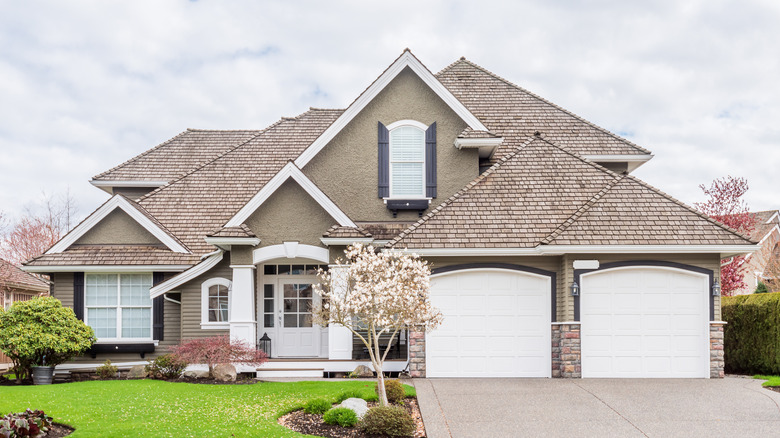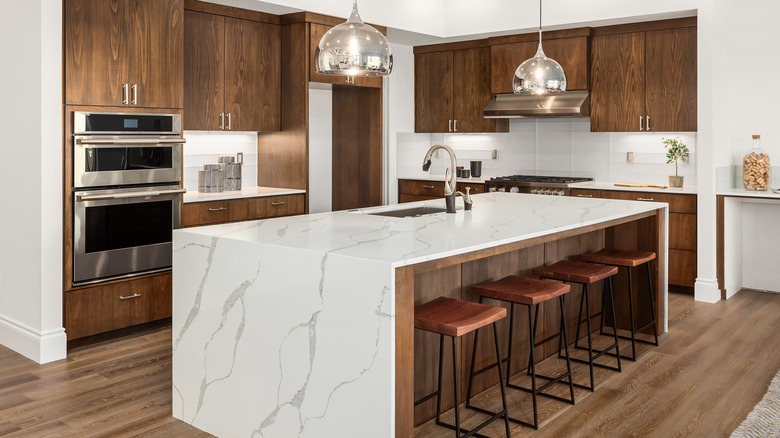This Is What's Really Causing Your House To Creak
If your house goes bump in the night — or makes weird gurgling and squeaking commotions at any time of day — then you've surely wondered what causes those mysterious sounds. While you may or may not be willing to admit that you've assumed they're the result of your house being haunted (and we certainly wouldn't blame you), there's likely a less supernatural (but sometimes just as alarming) reason for what you've been hearing. Indeed, contractor and TV personality Mike Holmes explained via the National Post that while "some noises are normal," there are others that are "warning signs" which can let you know that your home "require[s] immediate attention."
So, what about those creaks that you might have heard while in your home? They might be tiny sounds that are barely audible, while at other moments, it may seem like something in your house has broken apart (which would obviously be super worrisome). And, frankly, it's not an issue that's exclusive to older homes. Houses of all ages, shapes, and sizes can be prone to making creaking noises as are buildings in a wide range of areas. Why is that? Well, because there's probably a very common cause behind what you're hearing.
Read on to find out what a few of the probable possibilities might be!
Weather and wood might be the cause of your creaky house
You might think that living in an older house equals having a creaky home, or that odd sounds are an indication that something is breaking down within your walls. However, a creaky noise likely has less to do with the age of your house and more to do with the season and what the weather is like.
"Wood is porous and can expand and contract with changes in temperature and humidity," according to Alex Berezowski, the owner and general manager of The Foundation Experts, per Best Life. If you live in an area that experiences both hot and cold seasons, then Berezosky notes that "[d]uring the wintertime, wood flooring tends to contract, and in the summer, it often expands," which will lead to the noises that you may have been hearing. The expert also explained that your home is more likely to be creaky if the humidity level isn't between 35-55%.
What can you do to prevent the creaking sounds? While you may never completely rid your house of the quirky noises that it can sometimes make, it might help to keep the interior around the same temperature and avoid any major swings in humidity. Or, if you think that there might be a more serious issue, it could be time to bring in a professional to check things out. Otherwise, you might just want to pretend like there are a few friendly ghosts creaking around occasionally.

